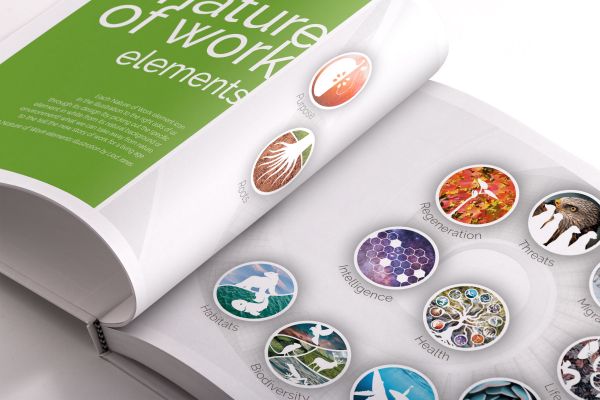Mental Health Awareness Week highlights importance of empathy in the workplace

#MentalHealthAwarenessWeek – New book ‘Nature of Work: The new language of work for a living age’ emphasizes need for organizations to hold human feelings, connections and potential at their core.
In 2020 the mental health of workers was put squarely in the spotlight when the world of work experienced one of the largest changes in living memory as workforces left physical workplaces en masse.
Fast-forward more than a year, and with vaccine rollouts starting to take effect in many countries, workers now face fresh worries and anxieties about leaving home to return to offices and physical workplaces.
Mental Health Awareness Week 2021 (May 10–16) brings a focus to mental health at a pivotal point in our emergence from the pandemic and offers a timely reminder that employers must show empathy and understanding to support employees whatever their physical location or work status.
According to the Health and Wellbeing at Work report published by the CIPD (the professional body for HR and people development) in March 2020, nearly two-fifths (37%) of respondents had seen an increase in stress-related absence over the previous year, while three-fifths (60%) reported an increase in common mental health conditions. The poll surveyed more than 1,000 people professionals and results showed that one of the top two causes of stress was management style.
In the newly published book Nature of Work: The new story of work for a living age, co-authors, Paul Miller and Shimrit Janes, highlight the need to transform companies from ‘organizations’ into living, breathing, growing ‘organisms’ that hold human feelings, connections and potential at their core.
“With the onset of the COVID-19 pandemic, organizational responsibility for people’s physical and mental health came even more to the forefront both in terms of how physically safe environments were for the people expected to work in them, but also the extent to which leaders, managers and colleagues were able to empathize with the physical and mental wellbeing of others in their organization and wider community,” explains Miller, CEO and Founder of Digital Workplace Group (rated by the Financial Times as one of the UK’s leading management consultancies in digital transformation in 2021).
In research carried out for Nature of Work across a wide range of global industries, findings point to an empathetic approach to people management leading to better Health for companies, Health being one of the 12 Nature of Work elements that make up the new language of work for a living age.
“It was observed that organizations consisting of people practising empathy were better able to support and include, for example, those working from home while also having to parent or double as caregivers, and were better equipped to help manage the mental health impacts of living through a pandemic,” write Miller and Janes. “Empathy helped teams to come together virtually and to collaborate effectively, making sure everyone was able to participate and contribute.”
Miller’s previous work, The Digital Renaissance of Work: Delivering digital workplaces fit for the future (co-authored with Elizabeth Marsh), was shortlisted for the CMI Management Book of the Year 2016 Award. His first book, The Digital Workplace: How technology is liberating work, was published in 2012.
Nature of Work: The new story of work for a living age
In Nature of Work, Paul Miller, CEO and Founder of Digital Workplace Group (DWG), and Shimrit Janes, DWG’s Director of Knowledge, draw on patterns from forests and the natural world to illustrate a dynamic, vital and more beautiful world of work that our hearts and minds know is possible.
Through inspiring imagery and metaphors drawn from nature, Miller and Janes provide change-makers in companies and organizations of any size with the language and questions to evolve their workplaces from organization to organism.
Nature of Work is a manifesto and guidebook for what DWG has called ‘The Decade of Courage’. Through the lens of nature, it explores 12 essential workplace elements, such as health, habitat, regeneration, intelligence, relationships and purpose, underpinned by real-life stories of organizations and people already on this journey to new ways of working.
Paul Miller is a technology and social entrepreneur.
He is CEO and Founder of Digital Workplace Group (DWG), rated by the Financial Times in 2020 and 2021 as one of the UK’s leading management consultancies in digital transformation. His previous books include The Digital Renaissance of Work: Delivering digital workplaces fit for the future (co-authored with Elizabeth Marsh), which was shortlisted for the Management Book of the Year 2016 Award, and The Digital Workplace: How technology is liberating work, which helped to popularize the term ‘digital workplace’.
Shimrit Janes is Director of Knowledge for DWG, focused on curating knowledge on the digital workplace for its members and clients such as Adobe, The Coca-Cola Company, Ubisoft and UNHCR. She has worked with Paul and DWG colleagues on various initiatives, such as Digital Nations Group, as well as co-hosting the 24-hour global digital experience DWG24. She has had a number of research papers published with DWG on topics such as organizational readiness and collaboration.











Responses